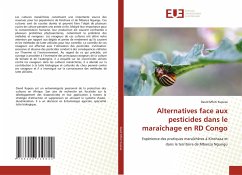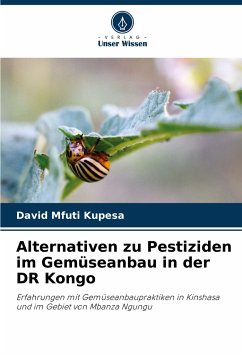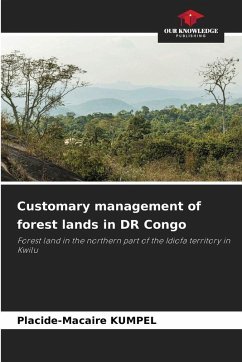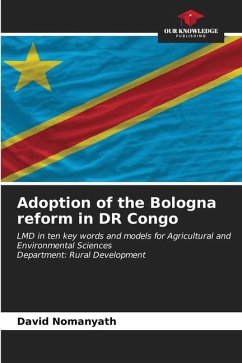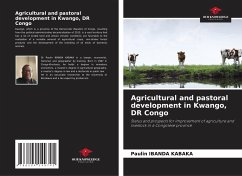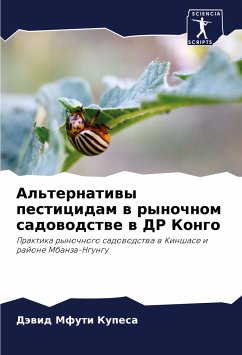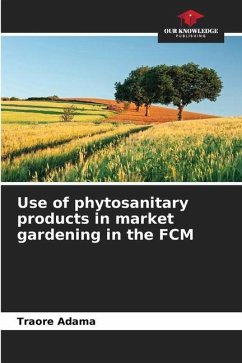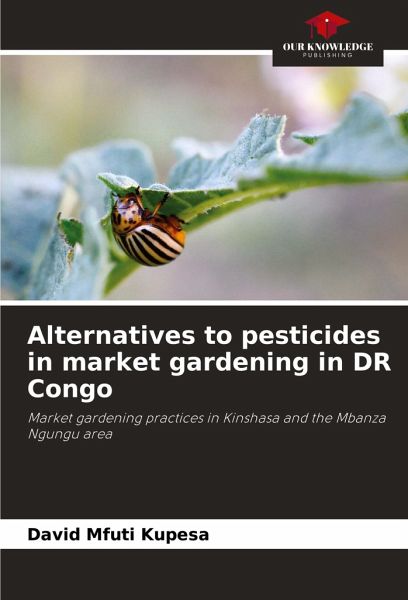
Alternatives to pesticides in market gardening in DR Congo
Market gardening practices in Kinshasa and the Mbanza Ngungu area
Versandkostenfrei!
Versandfertig in 6-10 Tagen
40,99 €
inkl. MwSt.

PAYBACK Punkte
20 °P sammeln!
Market garden crops are an important source of income for the populations of Kinshasa and Mbanza Ngungu. These crops are short-lived, and can be grown several times during a calendar year. Despite their importance for human consumption, their production is often confronted with a number of phytosanitary problems, notably diseases and pests. Pests of these crops have attracted our attention because of the damage and yield losses they cause, and the control methods used to manage them. Pests are controlled through the use of pesticides. The excessive and abusive use of pesticides leads to harmfu...
Market garden crops are an important source of income for the populations of Kinshasa and Mbanza Ngungu. These crops are short-lived, and can be grown several times during a calendar year. Despite their importance for human consumption, their production is often confronted with a number of phytosanitary problems, notably diseases and pests. Pests of these crops have attracted our attention because of the damage and yield losses they cause, and the control methods used to manage them. Pests are controlled through the use of pesticides. The excessive and abusive use of pesticides leads to harmful consequences for man and the environment. In view of the above, this book has proceeded to an inventory of the main pests of tomato and eggplant crops; it has investigated the insecticides used against pests in vegetable crops; it has addressed the contribution to the biological and cultural control of cabbage against its pests; it has investigated the knowledge of the control methods used.



